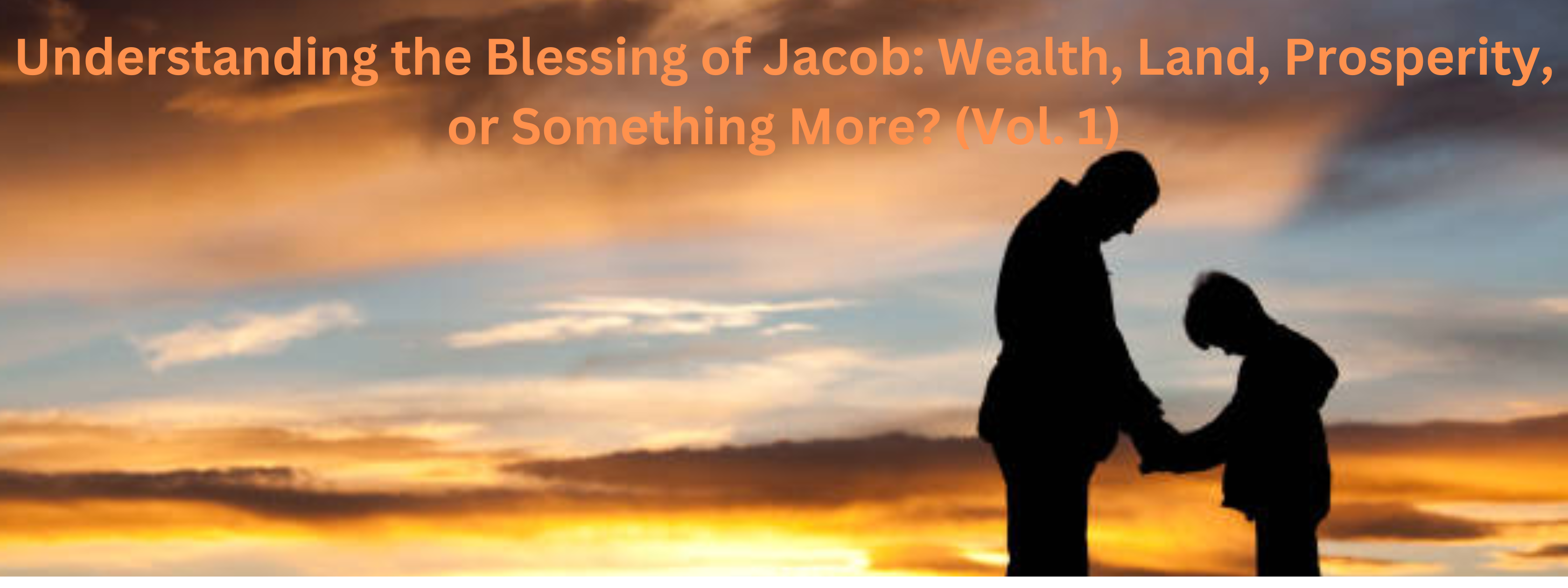
The question seems to be: What does the writer mean, and what does this writer want to say? Read until the end, and you will get the gist.
Reading through the Old Testament, especially in the book of Genesis, it is observed that there was a culture of passing blessings to the next generation (Got Questions).
Noah was the first to bless and curse his offspring. There is a rule in Bible study called the “Law of First Mention.” This rule sheds light on the usage of a biblical concept. In the case of Noah, why did he bless and curse? He blessed and cursed his children based on their reactions to his drunken state.
Noah was drunk and naked in his tent. Two of his sons, Shem and Japheth, covered their father, turning their backs as they did so. The Bible says Noah awoke to discover what his youngest son had done to him. Here was his reaction:
Genesis 9:24-27 (NIV)
24 When Noah awoke from his wine and found out what his youngest son had done to him,
25 he said, “Cursed be Canaan! The lowest of slaves will he be to his brothers.”
26 He also said, “Praise be to the Lord, the God of Shem! May Canaan be the slave of Shem.
27 May God extend Japheth’s territory; may Japheth live in the tents of Shem, and may Canaan be the slave of Japheth.”
Noah blessed Shem and Japheth because they honored their father, while he cursed Canaan because of dishonor. This blessing was based on works—on how the children treated their father.
From the story of Noah, we conclude that the first mention of blessing one’s children was based on their actions.
Blessings are significant in the Bible. God blessed Adam and Eve, saying:
Genesis 1:28 (NIV)
“Be fruitful and increase in number; fill the earth and subdue it. Rule over the fish in the sea and the birds in the sky and over every living creature that moves on the ground.”
In this verse, the blessing was not based on whether Adam and Eve did right or wrong; rather, it was based on God’s goodness. This is the first mention of blessing in the Bible.
The first mention of blessing in the Bible was based on God’s goodness to Adam and Eve, regardless of their actions. However, the first mention of a blessing passed down from a father to his sons was based on their works or attitude toward their father.
The Blessing of Abraham
Genesis 12:2-3 (KJV)
2 And I will make of thee a great nation, and I will bless thee, and make thy name great; and thou shalt be a blessing.
3 And I will bless them that bless thee, and curse him that curseth thee: and in thee shall all families of the earth be blessed.
Genesis 13:14-18 (KJV)
14 And the Lord said unto Abram, after that Lot was separated from him, Lift up now thine eyes, and look from the place where thou art northward, and southward, and eastward, and westward.
15 For all the land which thou seest, to thee will I give it, and to thy seed forever.
16 And I will make thy seed as the dust of the earth: so that if a man can number the dust of the earth, then shall thy seed also be numbered.
17 Arise, walk through the land in the length of it and in the breadth of it; for I will give it unto thee.
18 Then Abram removed his tent, and came and dwelt in the plain of Mamre, which is in Hebron, and built there an altar unto the Lord.
Genesis 15:1, 5-6 (KJV)
1 After these things the word of the Lord came unto Abram in a vision, saying, Fear not, Abram: I am thy shield, and thy exceeding great reward.
5 And he brought him forth abroad, and said, Look now toward heaven, and tell the stars, if thou be able to number them: and he said unto him, So shall thy seed be.
6 And he believed in the Lord; and he counted it to him for righteousness.
The verses above show the different times and ways God blessed Abraham. This context is essential in understanding the blessing of Jacob.
To go further, let’s explore what the Apostle Paul said about the blessing of Abraham:
Galatians 3:14-18 (KJV)
14 That the blessing of Abraham might come on the Gentiles through Jesus Christ; that we might receive the promise of the Spirit through faith.
15 Brethren, I speak after the manner of men; Though it be but a man’s covenant, yet if it be confirmed, no man disannulleth, or addeth thereto.
16 Now to Abraham and his seed were the promises made. He saith not, And to seeds, as of many; but as of one, And to thy seed, which is Christ.
17 And this I say, that the covenant, that was confirmed before of God in Christ, the law, which was four hundred and thirty years after, cannot disannul, that it should make the promise of none effect.
18 For if the inheritance be of the law, it is no more of promise: but God gave it to Abraham by promise.
Paul explained that the promise God gave to Abraham was “the promise of the Spirit through faith.” He also clarified that the “seed” God referred to was Christ.
A common theme in the Old Testament is that when God establishes an eternal covenant or promise with someone, He often gives them a physical representation of that blessing. If one focuses only on the physical aspect, they may believe the blessing is merely material. Abraham received Isaac and land, but when scripture is taken as a whole, it becomes clearer that the blessing and the covenant had a deeper, eternal significance.
Since God’s promise to Abraham was generational, He also established His blessing with Abraham’s son, Isaac. Isaac then had two sons, and one of them had to carry this same blessing. Right?
To be continued !!!!
